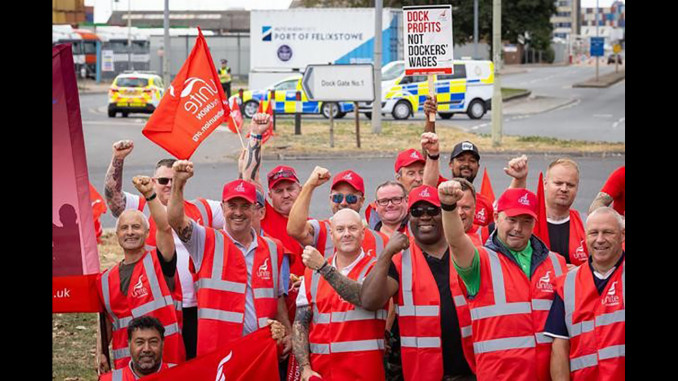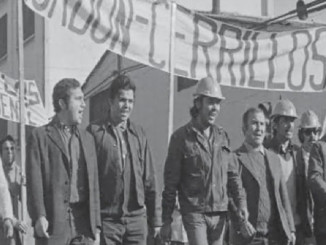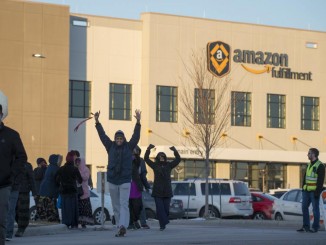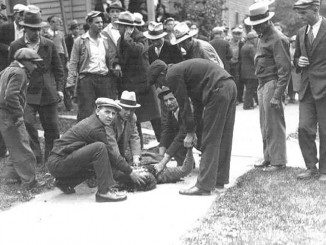
On August 28, nearly 2,000 port workers in Felixstowe, the United Kingdom’s busiest port, concluded an 8-day strike that followed their rejection of a final offer from C.K. Hutchinson Holding, Ltd, the port operator. Because the port handles nearly one-third of all the U.K.’s trade, and an even larger percent of its trade with Asia, analysts are concerned that any disruption in this important spot in the global supply chain could cause shortages and maybe even price increases for British consumers.
Shipping company bosses and their anti-worker propagandists jumped on these concerns and blamed the striking workers for even potential price increases or shortages that might affect consumers. They are saying that they offered the workers an 8% pay raise, and that UNITE Felixstowe, the union representing the workers, is asking for unreasonable pay increases.
But as usual, the workers struck about more than just pay. They’re angry that they were required to work during much of the pandemic with little or no protection. They’re angry about a two-tier pay system that disadvantages younger, newer workers. They’re mad that health and pension benefits have been chipped away over decades. They’re angry at record corporate profits. And yes, they are obviously concerned about their own pay, particularly as inflation weakens their purchasing power, with inflation expected to continue at 13% in the coming months. Although the union is pushing for a 10% wage hike, one worker said that even that probably isn’t enough, and that if they agreed to a 10% increase today, they might be back on strike in January just to catch up with inflation. Dockworkers in Liverpool, the main port on Britain’s west coast, are also feeling the pinch of inflation, and may also strike in coming days.
And let’s keep in mind that it was not the workers who created the just-in-time supply system that leads to shortages and scarcities, as happened with personal protective equipment (PPE) during the early days of the pandemic. It was not the workers who closed down factories in the U.K. that previously manufactured many of the items they now get from other nations. This insane global trade system was created and developed by big businesses eager to cut costs to increase their profits.
Workers are not to blame for demanding better pay and treatment within this profit-driven system. By withholding their labor to fight for better treatment, the workers of Felixstowe have taken the first steps toward building the power to make the kind of changes that they – and all of us – so desperately need.




